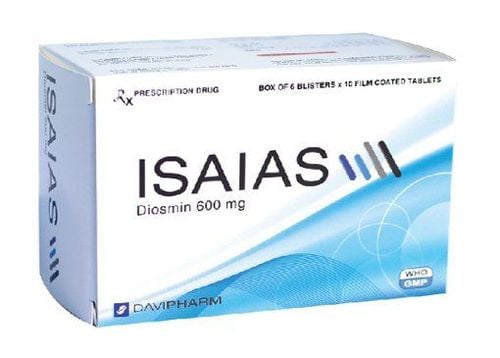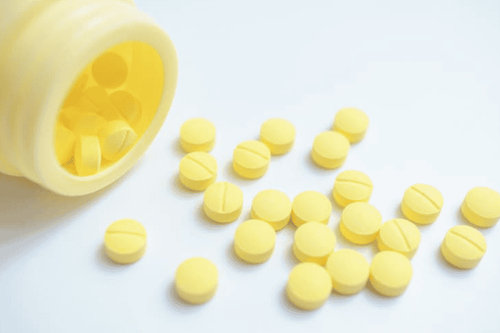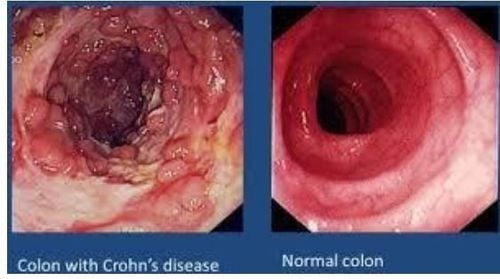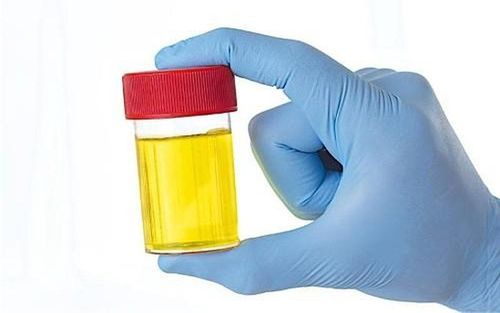This is an automatically translated article.
The article was professionally consulted by Specialist Doctor I Nguyen Hong Phuc - Emergency Resuscitation Doctor, Emergency Resuscitation Department - Vinmec Phu Quoc International General Hospital. The doctor has nearly 20 years of experience in Emergency Resuscitation.If dehydration is not diagnosed and treated promptly, it can lead to severe dehydration. The most dangerous complications of severe dehydration are cardiovascular collapse, low blood pressure and a high risk of death. Therefore, everyone needs to be well informed about this condition in order to have early treatment and minimize possible dangerous complications.
1. Severe dehydration
Severe dehydration is considered an emergency. If not handled promptly, it will have severe consequences, especially for dehydration in children.A normal person is diagnosed as severely dehydrated when the following symptoms appear:
Thirst: Thirst is the most typical symptom even in cases of mild or severe dehydration. Thirst will increase gradually depending on the amount of water lost without timely rehydration measures. Not urinating or urinating very little: Dehydration causes the body to find ways to retain water, one of which is to limit urine excretion. Urine (if any) is discharged will be dark yellow. In particular, the inability to urinate is a sign that the body is in a state of severe dehydration, which should be treated immediately. No Sweating: Similar to urine, the body also retains water by limiting perspiration. So even in hot weather, sweat glands cannot function properly. This can lead to an increase in body temperature that causes you to get heatstroke or heat exhaustion. Headache, dizziness: These symptoms are accompanied by a rapid heartbeat and a drop in blood pressure, which can occur even when the body is only mildly dehydrated. Skin pinch disappears slowly or very slowly: Lightly pinch any area of the body if the skin returns to its normal state slowly or very slowly (over 2 seconds), indicating that the body is seriously dehydrated, causing dehydration. skin elasticity decreases.

The child shows signs of fatigue, slows response to stimuli even lethargy Crying without tears No wet diapers visible for about 2-3 hours . Dry lips, tongue, sunken eyes, cold hands and feet Skin pinching goes away slowly or very slowly.

2. Causes of severe dehydration
There are many causes of severe dehydration including:Temperature: Severe dehydration can occur when the body is exposed to high temperatures for a long time causing excessive sweating. , for example: working or playing sports in the sun or staying too long in a sauna. Diarrhea: Diarrhea can be accompanied by vomiting causing you to lose a large amount of water in a short period of time, if not replenished in time will lead to severe dehydration. Fever: Patients with persistent high fevers that cause the body to sweat a lot are also at risk of becoming severely dehydrated. Not drinking enough water: In certain conditions where a water supply cannot be found, such as walking in the desert or being in an area where there is no clean water to use, the amount of water added to the body does not make up for the amount of water. Loss of water will cause you to gradually fall into a state of severe dehydration. Medications: Certain medications that increase urine output, such as those used to treat high blood pressure, can cause you to lose water more quickly, leading to severe dehydration. In addition, another common cause is the subjectivity of many people who do not have timely rehydration solutions when the body is mildly dehydrated, leading to severe dehydration.

3. Treatment of severe dehydration
Severe dehydration that is left untreated can lead to brain damage and even death. Severe dehydration needs to be treated with intravenous fluids and electrolytes for faster absorption.Regular oral rehydration will not be able to meet the water needs of the cells in time. The infusion fluid is usually a mixture of water, salt, and electrolytes such as potassium and sodium. In addition, the patient's heart rate and blood pressure should be continuously monitored during the infusion until the heart rate and blood pressure return to normal. Besides, it is still necessary to actively drink water for the patient.
Direct intravenous fluids can also be used in children with severe dehydration. However, only use this method when rehydration with oresol solution or saline solution is not effective.
Severe dehydration is a dangerous condition, requiring emergency care, occurring when the body loses a large amount of water due to many reasons such as working or playing sports outside in the hot sun, medical conditions such as diarrhea, vomiting... or the use of diuretics without reasonable rehydration measures. The most effective treatment for severe dehydration is a direct intravenous infusion of a mixed solution of water, salt, and electrolytes along with oral rehydration.
Vinmec International General Hospital is the address for examination, treatment and prevention of diseases. When performing the examination process at Vinmec, customers will be welcomed and used modern facilities and equipment along with perfect medical services under the guidance and advice of experts. Good doctors, well-trained both at home and abroad.
Please dial HOTLINE for more information or register for an appointment HERE. Download MyVinmec app to make appointments faster and to manage your bookings easily.
Reference source: healthline.com













